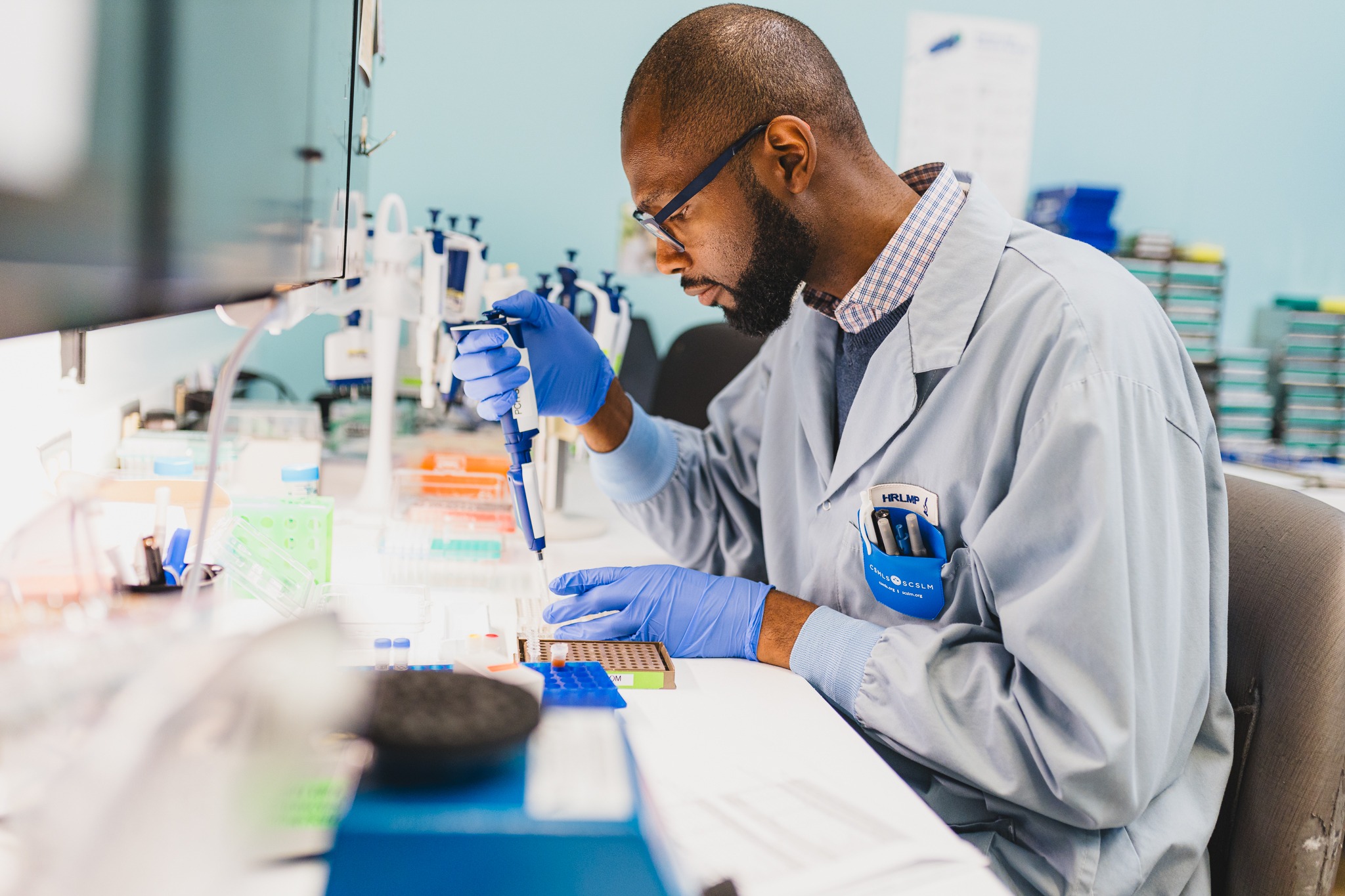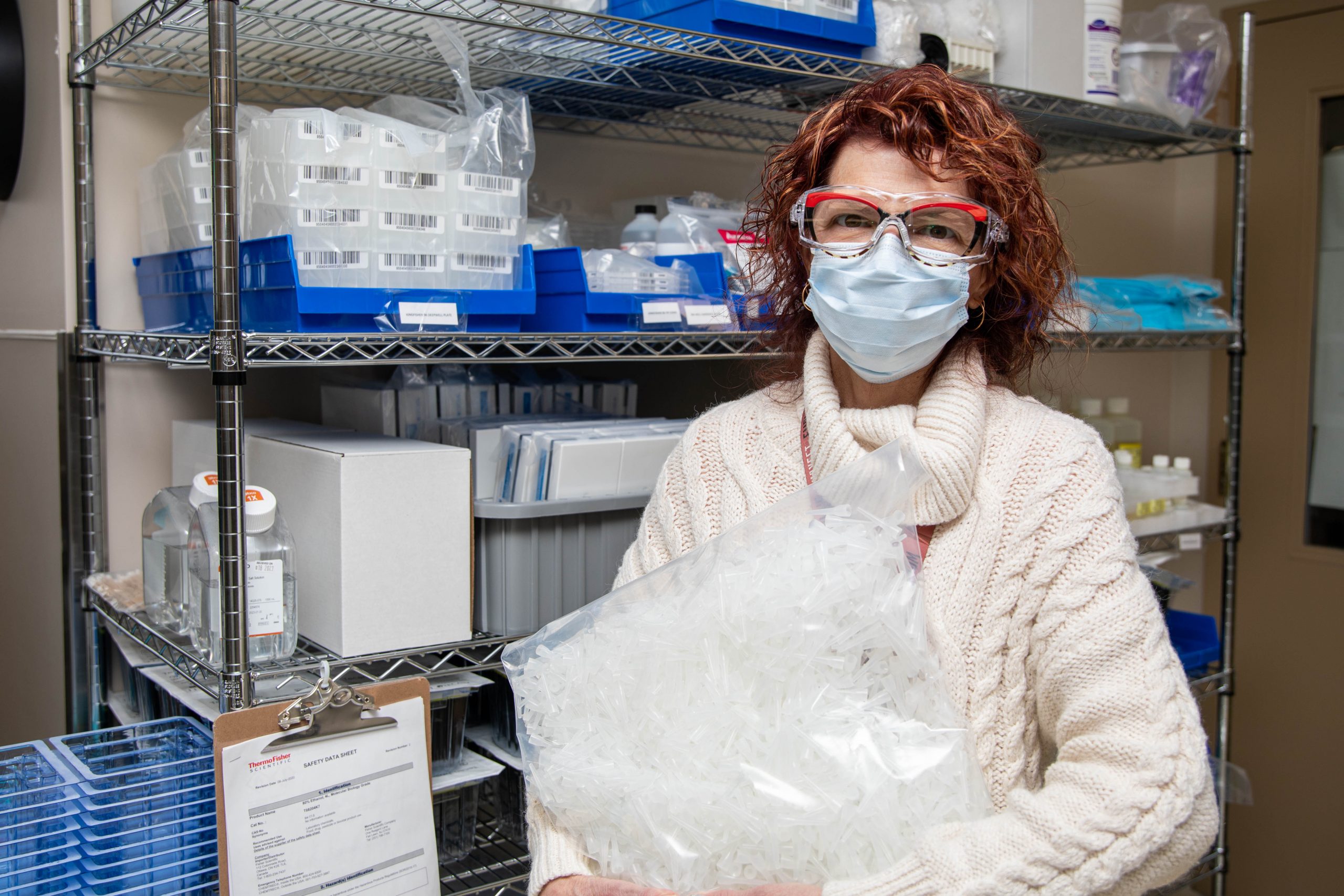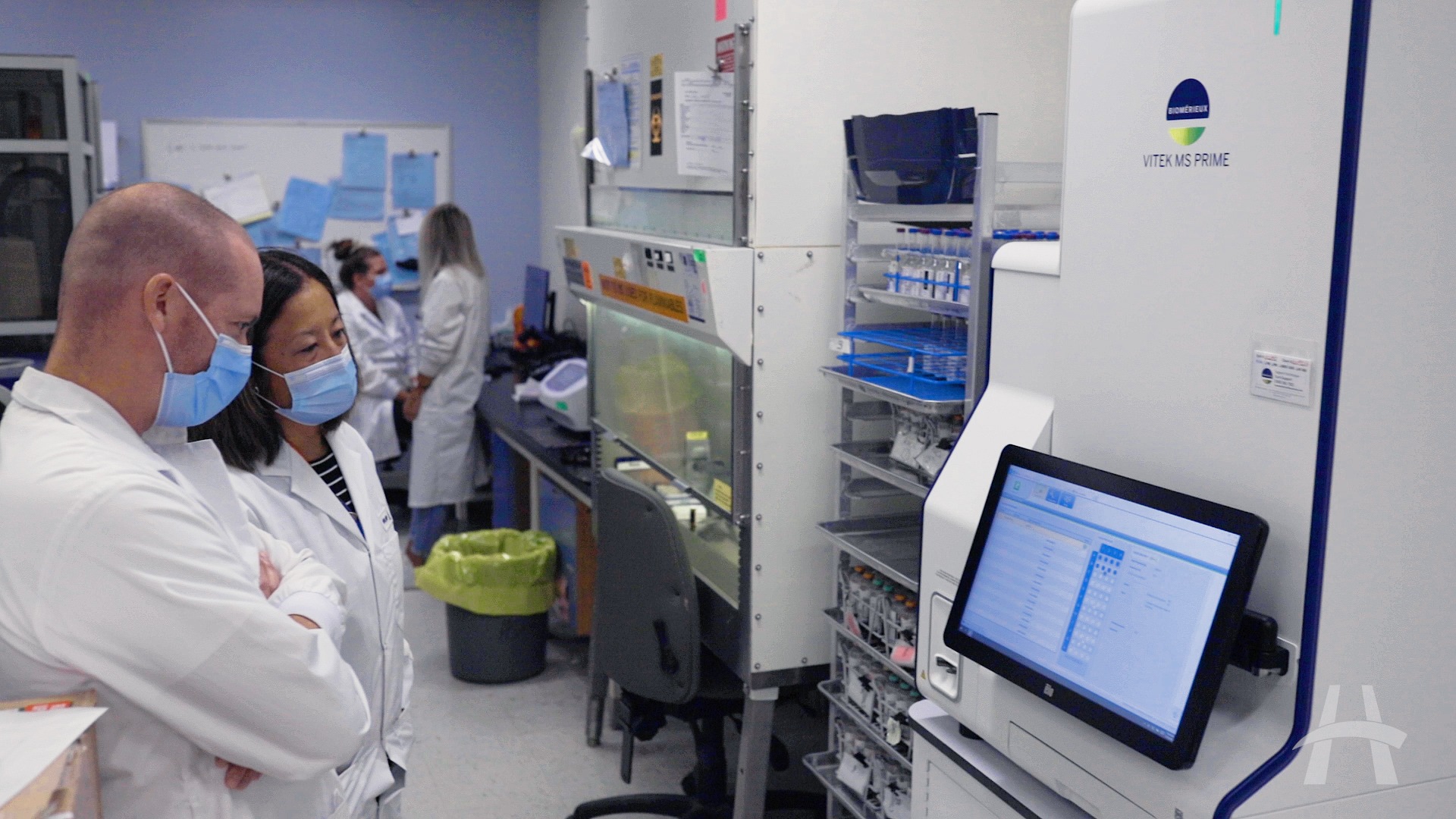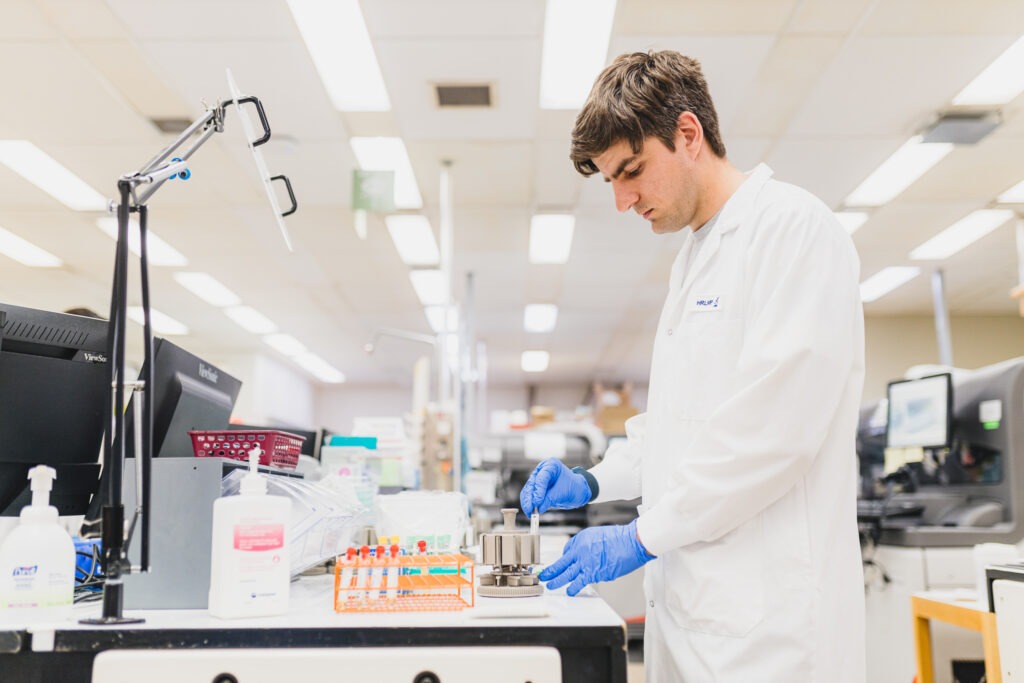
“We view these samples as our patients.”
Hamilton Regional Laboratory Medicine Program
Some of the most familiar faces to patients are their Hamilton Health Sciences (HHS) doctors and nurses.
But behind the scenes, thousands of other HHS health-care professionals play vital roles in patient care including lab staff, whose work touches nearly every patient at HHS as well as other patients across the region and even provincially.
Lab staff are part of the Hamilton Regional Laboratory Medicine Program (HRLMP), a partnership between HHS and St. Joseph’s Healthcare Hamilton. The HRLMP is one of the largest such lab service programs in the country consisting of 30 labs across both hospitals with over 700 team members.
Patient care almost always includes lab work
When senior medical lab technologist Brian Vandermey and his colleagues receive blood work, they see far more than samples in need of processing.
“We view these samples as our patients, as if they’re right there in front of us,” says Vandermey, who works at a core lab at Hamilton Health Sciences (HHS) McMaster University Medical Centre. “While we don’t work directly with patients, we feel connected to them through our work and making a difference in their lives. I’ve always really appreciated that.”
Core work by core labs
Core lab staff perform tests primarily on blood and urine samples to check for such things as urinary tract infections, anemia, diabetes, heart attacks, cancer and other diseases.

Brian Vandermey, senior medical lab technologist
Other HHS core labs are located at Hamilton General Hospital, Juravinski Hospital and Cancer Centre and West Lincoln Memorial Hospital in Grimsby. Core labs operate 24/7 at the larger hospital sites, providing fast, high-volume test processing for emergency departments, intensive care units, hospital inpatients and hospital clinic patients.
Core labs staff include medical laboratory technologists, medical laboratory assistants, senior medical laboratory technologists, technical specialists and managers, with professional staff support from clinical chemists, medical biochemists and hematologists.
Finding the perfect fit
Vandermey has worked at HHS for close to three years, starting as a medical laboratory technologist and then moving into the senior role.
“Through the HRLMP, there are a lot of labs that people can work in, in many different capacities.”
In high school, he excelled at biology and chemistry but also enjoyed hands-on work. His mother, a nurse, was familiar with the medical laboratory technologist’s role and suggested he look into it as a career path.
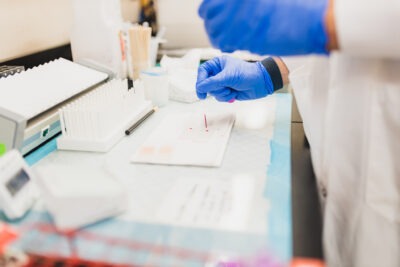
Brian Vandermey prepares slides to check blood cells for certain cancers.
“I checked into it and found that it ticked all the boxes for what I wanted to do,” says Vandermey.
His role as a senior medical lab technologist involves hands-on work while also helping to ensure that the day-to-day operation runs smoothly. He’s also a touchpoint for any technical issues that arise.
Vandermey’s advice to anyone considering lab work as a career is to reach out to people already working in the field. And don’t assume that the work is narrow in scope.
“Through the HRLMP, there are a lot of labs that people can work in, in many different capacities. You definitely don’t have to do the exact same thing for your entire career.”
For more information about HHS careers, including job listings, please visit the careers page.

